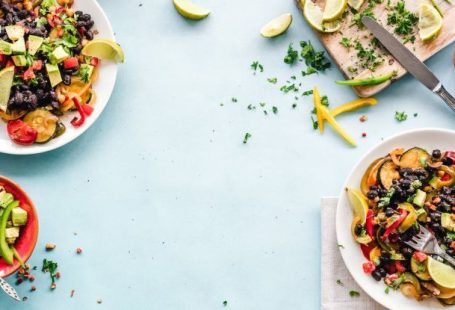Creating a well-rounded grocery shopping list is essential for maintaining a healthy and balanced diet. With countless options available at the grocery store, it can be overwhelming to decide what to include. However, there are some key items that should be on every grocery shopping list to ensure you have the necessary ingredients for nutritious meals that will support your overall well-being.
**Fresh Fruits and Vegetables**
When it comes to building a healthy grocery list, fresh fruits and vegetables should be at the top of your priorities. These nutrient-packed foods are rich in vitamins, minerals, and antioxidants that are essential for optimal health. Aim to include a variety of colors in your selection to ensure you are getting a wide range of nutrients. Leafy greens, berries, citrus fruits, and cruciferous vegetables are great choices to incorporate into your meals.
**Lean Proteins**
Proteins are the building blocks of the body and are essential for muscle growth, repair, and overall health. When planning your grocery list, be sure to include lean sources of protein such as chicken, turkey, fish, tofu, and legumes. These options are lower in saturated fats and can help you feel full and satisfied after meals. Incorporating a variety of protein sources into your diet will ensure you are getting a balanced intake of amino acids.
**Whole Grains**
Whole grains are a great source of fiber, vitamins, and minerals that are essential for a healthy diet. When creating your grocery list, opt for whole grain options such as brown rice, quinoa, oats, and whole wheat bread. These foods provide sustained energy levels and can help support digestive health. Avoid refined grains like white bread and white rice, which have been stripped of their nutrients and fiber content.
**Healthy Fats**
Including healthy fats in your diet is important for brain health, hormone production, and overall well-being. When grocery shopping, be sure to add sources of healthy fats such as avocados, nuts, seeds, and olive oil to your list. These foods are rich in omega-3 fatty acids and monounsaturated fats that can help reduce inflammation and support heart health. Incorporating a variety of fats into your meals can add flavor and texture while also providing essential nutrients.
**Dairy or Dairy Alternatives**
Dairy products are a good source of calcium, vitamin D, and protein, which are important for bone health and overall growth. If you are lactose intolerant or choose to avoid dairy, there are plenty of dairy alternatives available such as almond milk, coconut yogurt, and soy cheese. When making your grocery list, be sure to include options that align with your dietary preferences and needs to ensure you are meeting your nutritional requirements.
**Herbs and Spices**
Herbs and spices are a great way to add flavor to your meals without extra calories or sodium. Including a variety of herbs and spices on your grocery list can help enhance the taste of your dishes while providing potential health benefits. Garlic, ginger, cinnamon, and turmeric are just a few examples of flavorful additions that can elevate your cooking and support your health goals.
**Conclusion: Building a Nutrient-Dense Grocery List**
Creating a grocery shopping list that includes a variety of fresh fruits and vegetables, lean proteins, whole grains, healthy fats, dairy or dairy alternatives, and herbs and spices is key to maintaining a balanced and nutritious diet. By stocking your kitchen with these essential items, you can ensure that you have the ingredients necessary to prepare meals that will support your overall health and well-being. Prioritizing nutrient-dense foods can help you make healthier choices and establish sustainable eating habits that promote long-term wellness.





